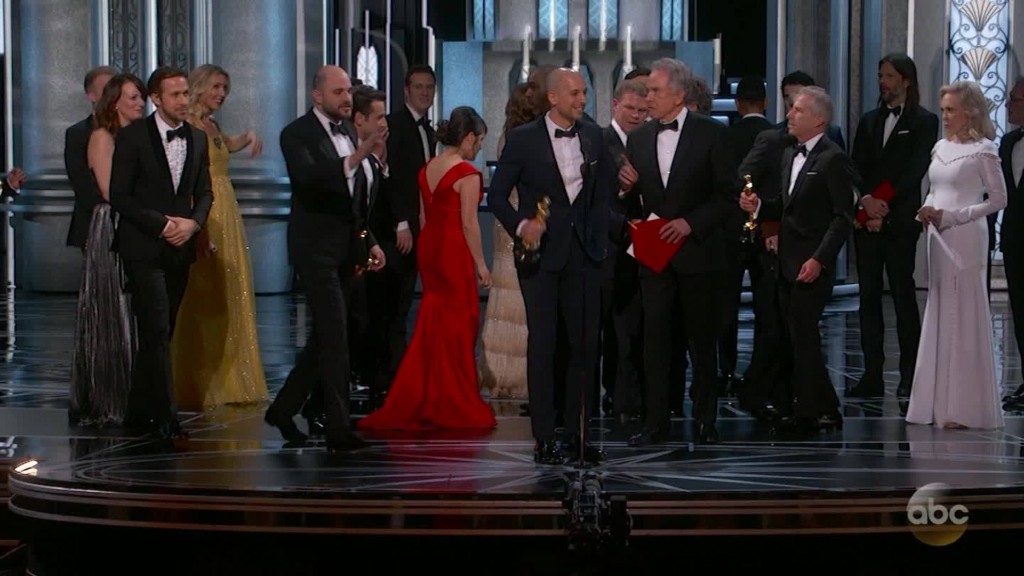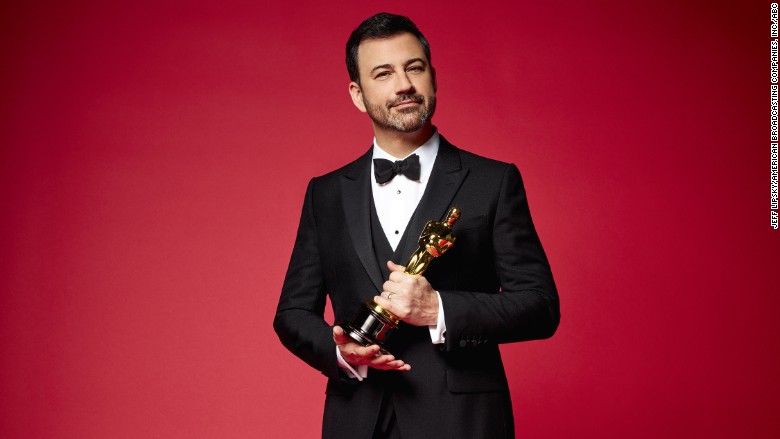
The Oscars may have had a surprise twist at the end, but that didn't help its ratings.
The 89th Annual Academy Awards brought in an average of 32.9 million viewers on Sunday night, according to ABC. That number is the second lowest viewership in Oscar history and is down from the 2016 broadcast, which brought in 34 million viewers.
Sunday's show is lowest rated Oscars since 2008 where Jon Stewart hosted and "No Country For Old Men" won Best Picture. That broadcast brought in 32 million, according to Nielsen.
Hollywood's biggest night had one of the strangest and most talked about endings in Oscar history following a Best Picture snafu that saw "La La Land" announced as winner even though the award actually went to "Moonlight."
The Oscar's extravaganza lasted nearly four hours and the Best Picture flub didn't happen until after midnight ET.
Away from the madcap ending, the show also had some other miscues including listing the wrong person as dead in the In Memoriam tribute during the show.
Yet, the show received mostly positive reviews from critics who found host Jimmy Kimmel enjoyable as he weaved his way through the night's awards and political overtones.
"ABC was playing it safe and promoting its own late-night star, but in hindsight, Kimmel proved a helpful choice given the polarized climate," wrote CNN critic Brian Lowry. "He brought a light touch to his satire -- acknowledging partisan division and poking at Trump without seeming mean-spirited -- and an overall silliness to the proceedings."
Despite its rating dip, the Oscars were still the number one entertainment telecast in the last year.

Related: Oscars mix politics, silliness and shocking twist ending
Even though the Best Picture mix up didn't help bring in big viewership, the shocking ending was the talk of Hollywood, news shows and social media on Monday.
Some critics like the New York Times TV critic James Poniewozik even compared it to President Trump's surprising win on Election Day.
"After the election in November, we should have known better than to assume that a sure thing was a sure thing," wrote Poniewozik.


